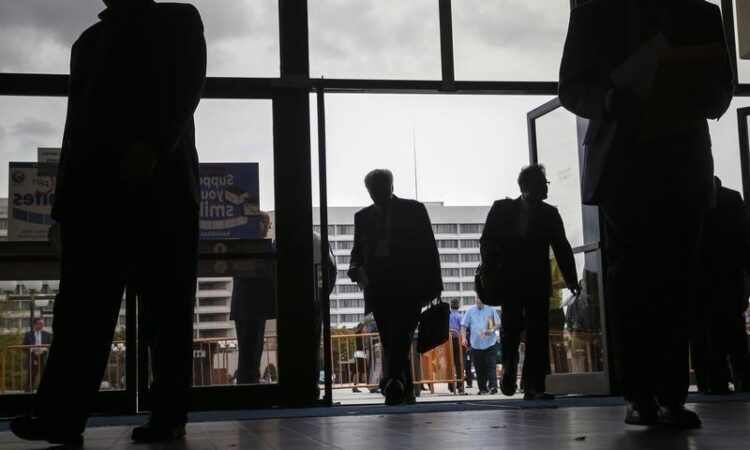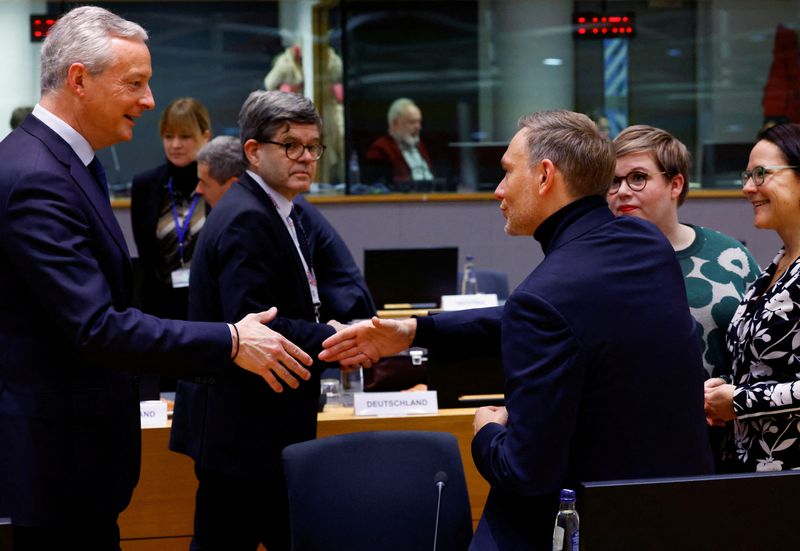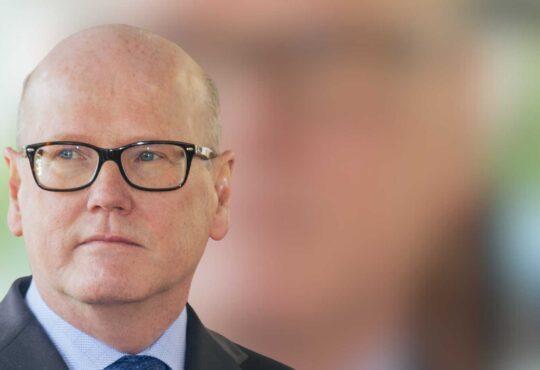

© Reuters. FILE PHOTO: German Finance Minister Christian Lindner and his French counterpart Bruno Lemaire attend a European Union finance ministers meeting in Brussels, Belgium December 6, 2022. REUTERS/Yves Herman/File Photo
PARIS (Reuters) – The European Union’s new budget rules will not be any more demanding than existing rules if EU finance ministers agree a revision based on a joint Franco-German position, a French Finance Ministry source said on Wednesday.
After months of talks, the French and German finance ministers agreed a joint position on Tuesday before a broader meeting with their EU counterparts on Wednesday, probably the last chance to reach a deal before the end of the year.
The aim is to update the European Union’s budget rules to reflect the need to bring down record post-COVID debt levels while carrying out huge investments in energy transition.
France has insisted the new rules must allow investment, but Germany has demanded binding assurances that budget deficits and debts will be reduced and that limits are not flouted as has often been the case in the past.
Outlining the Franco-German deal, the French Finance Ministry source said any fears that it could lead to “permanent austerity” were unfounded.
The new rules would allow interest payments to be excluded from how much a country must reduce its deficit each year, which in effect frees up funds for investment, the source said.
“You can’t say that the new rules impose a bigger adjustment. On the contrary the adjustment to reach the (deficit) target is much more progressive while the target itself is less constraining,” the source said.
For France, excluding the interest payment burden means that Paris would have to reduce the structural deficit by 0.25 percentage points of GDP per year rather than the 0.6 percentage points per year required under existing rules.
It also means that France could target a structural deficit of 1.5% of GDP over the medium term rather than 0.4% currently, freeing up resources for investment, the source said.





